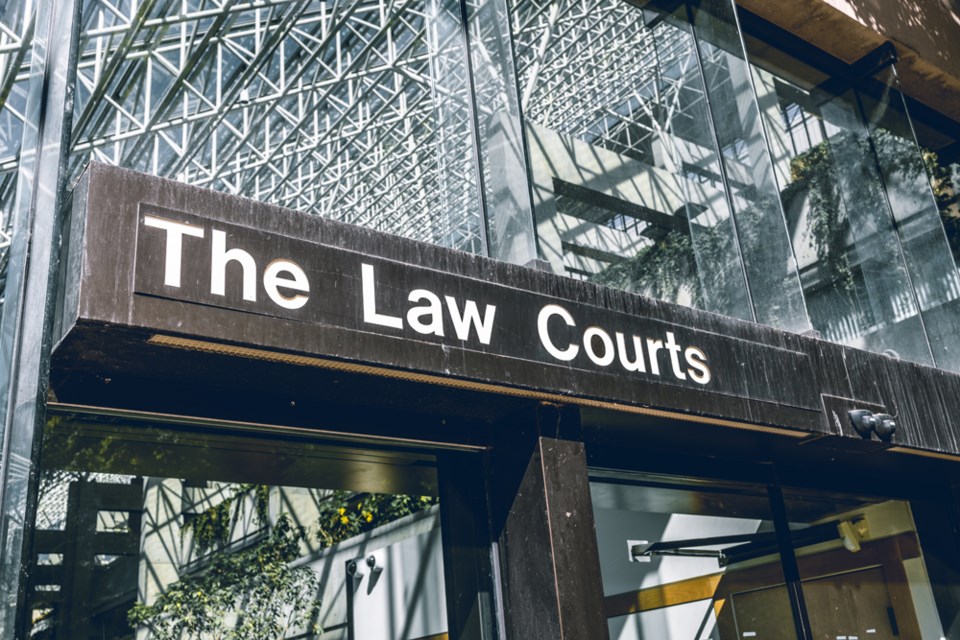The jury at a Burnaby murder trial has learned that an entire lot of test tubes was removed from use at the RCMP’s National Forensic Laboratory after tubes with pin-sized holes were discovered during the processing of DNA samples related to the case.
The trial of Ibrahim Ali resumed in B.C. Supreme Court in Vancouver this week after a break to accommodate vacation requests from jurors.
Ali has been charged with first-degree murder in the death of a 13-year-old girl whose body was found in Central Park on July 19, 2017, less than two hours after her family reported her missing.
Ali has pleaded .
The victim cannot be identified because of a publication ban.
Three DNA analysts who processed police exhibits at the RCMP lab in the case testified at the trial this week.
No direct links have yet been made between the exhibits and Ali or the girl.
Analysts Maria Li, Jacqueline Ip and Marie Helene Julien testified to their role receiving samples of biological material, extracting and analyzing DNA from them and passing their results on to a reporting scientist.
Answering questions from Crown prosecutor Colleen Smith, they talked about the process of handling the samples, which they received in test tubes, and about how DNA is extracted.
They also testified about the lab’s standard operating procedure, including processes to track samples as well as checks and controls to ensure accurate results.
During cross-examination, however, defence lawyer Kevin McCullough honed in on “event reports,” which report incidents that fall outside of the lab’s standard operating procedure.
In a batch of samples Ip worked on two days after the girl’s body was found in July 2017, one negative control, which should not have turned up any DNA, did, after being contaminated by a sample from another unrelated case.
Ip said the lab’s acting technical operations leader at the time confirmed the contamination but told her there was “no other contamination detected” and the results could be released to the reporting scientist.
Earlier in the week, Li had testified to a pin-sized hole being found in the bottom of one test tube she worked with in July 2021.
She said part of a sample of skin cell DNA leaked out, but the sample had already been analyzed and had been put into a new tube so it could be returned to police when that new tube was found to be defective.
The DNA left in the faulty tube was transferred into new tube and returned to police, Li said.
Another sample of sperm cell DNA was not affected, according to Li.
McCullough asked whether other defective tubes had been found after she reported the tube with a hole in it.
“Yes,” she said. “The whole lot was removed from use, and the manufacturer was notified.”
Li said no other tubes she used in the case were found to have holes.
Julien testified no event reports had been generated while she was processing a batch of samples between September to December 2018, and all of those samples were “processed successfully.”
Besides honing in on event reports, McCullough questioned each witness about their independent recollection of events, highlighting their dependence on notes and reports produced at the time to recall specific information, including whether or not checks and controls had actually been completed or whether boxes on the forms had simply been checked off.
“There’s always going to be a check mark every time,” McCullough said to Li during cross-examination.
But Li pushed back.
“Not if I haven’t done it,” she said.
DNA is a crucial part of the Crown’s case.
In her , Crown prosecutor Isobel Keeley said the jury would hear from witnesses that are expected to give evidence that Ali’s sperm was found inside the girl.
The Crown’s theory is that Ali attacked the girl inside Central Park, dragged her into the forest and strangled her while sexually assaulting her.
The trial will pause Friday and resume Monday.
Follow Cornelia Naylor on Twitter
Email [email protected]




